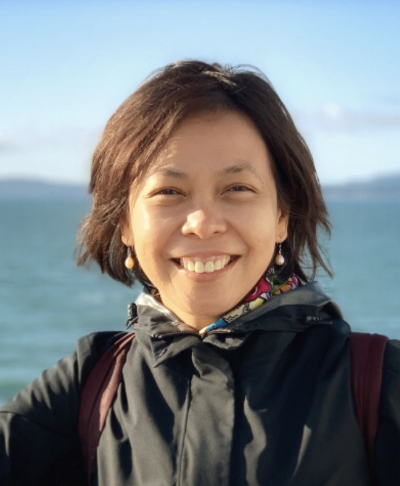
Dr. Penelope Sanz MSc, PhD
Dr. Penelope C. Sanz has conducted extensive ethnographic research on mining among the Indigenous Peoples in Southern Philippines for her doctoral studies. In 2022, her autoethnographic dissertation won the prestigious Illinois Distinguished Qualitative Dissertation Award in the Traditional Category of the International Institute for Qualitative Inquiry. at the University of Illinois, Urbana-Champaign. She is currently part of a multi-disciplinary research team investigating the First Nations and Métis built environment. Dr. Sanz lectures at the Ateneo de Davao University in Southern Philippines and at the University of Saskatchewan/St. Thomas More College. She is also the managing editor of the Engaged Scholar Journal: Community-based Research, Teaching and Learning, and the Journal of Aboriginal Economic Development.
About
I was born and raised on the island of Mindanao, Southern Philippines where my interdisciplinarity began. Confronted with high social and economic inequalities, escalating environmental degradation, complex cultural dynamics and history of armed conflicts, I became curious about frameworks and finding alternatives to address Mindanao’s backward economy. More so when the Indigenous Subanos in Western Mindanao enlisted my help in carrying out genealogical surveys for their land claims, and in conducting a community-based human rights impact assessment of a Canadian junior mining company extracting gold within their ancestral domain. I made use of my undergraduate degree in Biology, Master in Business Administration, and PhD in Anthropology (all-but-dissertation), which were taken at Xavier University and Ateneo de Davao, to understand the unintended consequences of the Philippine State’s mineral liberalization policy in Subanon land. At the core of Mindanao’s troubled landscape is social injustice, which exacerbates the island’s dire conditions. On the ground, communities were divided, mineral resource conflicts led to violence and death, and maldistribution of wealth generated is perpetuated with non-Mindanaoans getting more than Mindanaoans.
As I went deeper into my research which spanned eight years of intensive ethnographic fieldwork, I enlarged my methodology as consequential autoethnography (Sanz, 2019). The unintended consequences of the contextual actors’ purposive actions caught in the messy and confusing impact of mineral liberalization were constantly revised, innovated, and reinvented as interests, relationships, and dynamics within, between and among the Subanos and other social groups also shifted in response to changes, foreseen and unforeseen. These changing responses also included mine, which I also had to examine.
Research had become an extension of my life as a Mindanaoan researcher (Ngunjiri et al., 2010), compelling me, in turn, to rename “the field” as dynamic action, as a verb, “fielding” (Sanz, 2019). “Fielding” involved a process of engaging and being engaged in—experiencing the learning and becoming at home in a different way of thinking—a threshold concept and liminality that the consequential autoethnographer navigates and within which she is transformed. “Fielding” involves a different way of thinking about and doing research in which the researcher is acknowledged and located as central to knowing, integral to the story. The “consequential” aspect points to the state of being always ‘on one’s toes’ in paying attention, responding and adapting to unforeseen and unintended events, and ever-changing conditions and contexts, open to a wider variety of different relationships and interactions. “Fielding” both names and focuses on entering into new knowledge, into a changed way of thinking and into a different way of practicing and becoming at home there.
With consequential autoethnography, my research became an act of social justice (Toyosaki & Pensoneau-Conway, 2013) where storytelling is both methodology and more. It is telling the story as a practice of liberation where subordinated actors critically and creatively deal with reality and find ways to name and participate in transforming the world.
Perhaps because I was a stranger in Subanon land, people shared their stories with me to ease pain and trauma. I came to see that in story-telling, I hear historical past and details that reveal the truth today, of lives lived and perceive unseen wounds. I also hear yearnings for peace, healing and autonomy where the consequential auto-ethnographer creates open spaces for conversations and storytelling to facilitate dialogues.
It is with this backdrop that I ended up with a PhD in Interdisciplinary Studies from the University of Saskatchewan. I also received the 2022 Illinois Distinguished Qualitative Dissertation Award in the Traditional Category by the International Institute for Qualitative Inquiry, a multidisciplinary institute at the University of Illinois, Urbana-Champaign. These achievements are not mine alone. They also belong to those whom I encountered in Godforsaken fields of Mindanao, especially the Indigenous Subanos.


